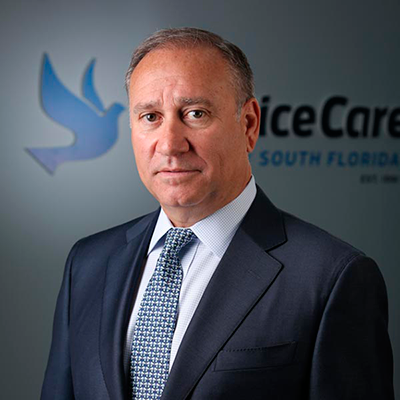Hospice is a comprehensive program of medical care and support for people dealing with end-of-life issues. The hospice philosophy is based on the ideas that no one should pass alone or in pain; life-limiting illnesses can cause emotional and spiritual distress as well as physical pain, all of which deserve quality professional attention and compassionate care. A serious illness affects the entire family, not just the person who is ill.
Those affected need and deserve ongoing support before and after a loved one’s passing. Hospice provides pain management and appropriate palliative care, care that focuses on the patient’s comfort, when curative treatments no longer enhance quality of life.
Hospice strives to meet the patient’s physical, emotional and spiritual needs and provides support for the entire family during the illness and for at least one year after a patient’s passing. Most hospice care is provided at home, where most people want to be when they are ill. Care is provided by professional staff, including, but not limited to, a physician, nurse practitioner (ARNP), registered nurse, licensed practical nurse, social worker, spiritual counselor, pastoral services. Opus Palliative Hospice also provides medications, medical equipment and other supplies, as needed. Hospice does not mean giving up. The focus shifts towards helping the patient achieve the maximum quality of life by attending to their physical, emotional and spiritual needs.
Hospice Care vs. Standard Medical Care
Some differences between hospice care and medical care are:
- Hospice looks at all of the patient’s and their family’s needs. A coordinated team of hospice professionals, assisted by volunteers, work together to meet the patient’s and family’s emotional and spiritual needs, as well as the patient’s physical needs.
- An emphasis is put on controlling pain and symptoms through the most advanced techniques available as well as on emotional and spiritual support tailored to the needs of the patient and their family.
- Hospice recognizes that a serious illness affects not only the person who is ill, but the entire family as well. The family and patient are the “unit of care” for hospice professionals. At times, other family members may actually need more attention than the patient.
Who pays for Hospice care?
Hospice palliative care is covered 100% by most insurance plans, including Medicare and Medicaid, with no out-of-pocket costs to the patient or family. The costs covered must be related to the terminal illness, including the services of the hospice team, medications, medical equipment and supplies.

Dr. Ismael Roque-Velasco President and CEO of OpusCare of South Florida
Contact Opus Palliative Hospice to learn more on how they can help you
and your loved ones in your time of need. For more information, please call
the 24-hour phone line at 305-591-1606 or visit www.opuscare.org.
*Formerly Hospice Care of South Florida



